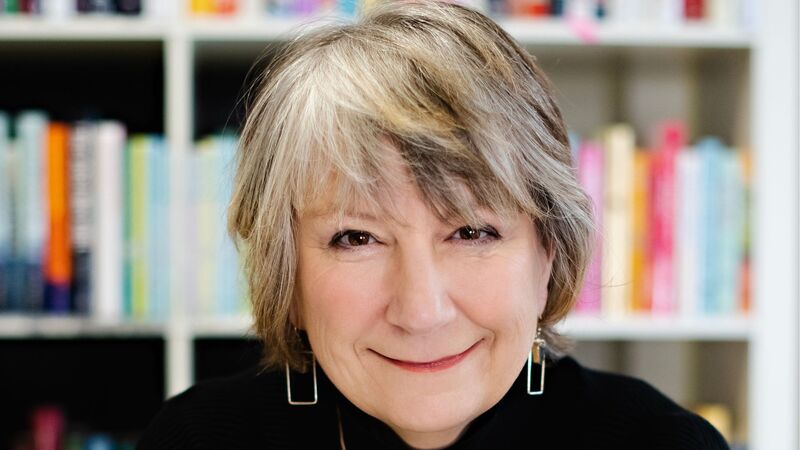You are viewing your 1 free article this month. Login to read more articles.
Gay readers are for life, not just anniversaries
I’m gay. There are few contexts in which I still feel uneasy sharing this information; writing for The Bookseller is one of them. Because for years I’ve been dismayed by the homophobia I’ve experienced in the publishing industry. Before you protest that you’re not homophobic, remember that the word ‘phobia’ means ‘fear’, not ‘hatred’. It’s this fear I’m hoping to combat.
When I’ve pitched gay-themed fiction to mainstream publishers, I’ve been told either that the idea isn’t commercial enough or that there’s no market for it, responses many other gay writers have told me they’ve also experienced. I have no problem with any of us being rejected because our work isn’t good enough, but I do object when we’re told that a market for our work doesn’t exist. Because, as editor-in-chief of Attitude, I know better.
Not only does the print edition of Attitude sell 50,000 copies a month, but our website is read by two million unique monthly users and our social media feeds boast followings in the hundreds of thousands, the biggest being Facebook (825,000). Look outside the UK and gay market is huge; according to the most recent estimates, there are 400 million LGBT+ people globally. If you’re pessimistic and assume that 90% don’t read fiction, that still leaves 40 million. But other than some YA fiction and a few heavyweight literary titles, they aren’t being offered novels that reflect or explore their experience.
Every day I’m bombarded with requests from publicists trying to secure coverage for their new album, film, play or TV show. Yet Attitude struggles to fill its books page, let alone print regular interviews with gay writers. There just aren’t enough of them— at least not with publishing deals. And those of us who’ve been lucky enough to clear the first hurdle and secure a deal are often told by sales and marketing departments that there isn’t an audience for our work, and subsequently given little or no support. When the sell-through is disappointing, it is held up as evidence that there’s no market for gay fiction. But this attitude originates from fear, not fact.
It’s 15 years since Will Young won “Pop Idol”, came out and sold 1.79 million copies of his début single. Since then there have been countless gay contestants on TV talent shows, countless gay pop stars. Soaps like “Coronation Street” and “EastEnders” have leading gay characters with storylines exploring their romantic and, yes, sexual lives. And a few months ago gay-themed film “Moonlight” won the Oscar for Best Picture, taking nearly $60m at the box office. Last year Prince William appeared on the cover of Attitude; our events are sponsored by the likes of Virgin Atlantic and Jaguar. None of these are frightened of engaging with a gay audience—they actively court it. So why is there so much fear within publishing?
I was thrilled to read in the last issue of The Bookseller about W H Smith Travel’s upcoming gay literature promotion, timed to coincide with the 50th anniversary of the decriminalisation of homosexuality in England and Wales. But it is not enough. Look outside the publishing industry and you’ll see the major TV channels are running seasons of programming around the anniversary. Tate Modern is hosting exhibitions by gay artists such as Wolfgang Tillmans and David Hockney, and the landmark Queer British Art Show has just opened at Tate Britain.
Other than a forthcoming event planned by Penguin Random House to celebrate its (mainly non-fiction) LGBT+ authors, where are the publisher-led initiatives? And why is the only sales promotion coming from a bookseller keen to serve a neglected market? Most of the publishers I’ve spoken to in the past year didn’t know anything about the anniversary. When one house was interested in buying a gay-themed novel I’d written, I told them about the anniversary. Although initially excited, when they realised they couldn’t publish the book in time to coincide with it, they pulled out of the deal. But gay readers are for life, not just anniversaries.
And it’s wrong to assume that gay books will only be read by gay people. In the UK, we are now so integrated into main-stream society that the barrier to empathising with central gay characters and their stories in any of the narrative arts has been removed. Besides, I’d argue that readers of fiction have a greater capacity for empathy, boosted by regular glimpses into the hearts and minds of people from different backgrounds, ethnicities and social classes to our own. The general public are ready to read accessible stories about gay lives and experiences. Trust me.
I’m writing this because the only way to eradicate homophobia is to communicate with homophobes and try to make them change their minds. So if you take one message away from this, let it be that there’s nothing to be afraid of. We are here; engage with us.












